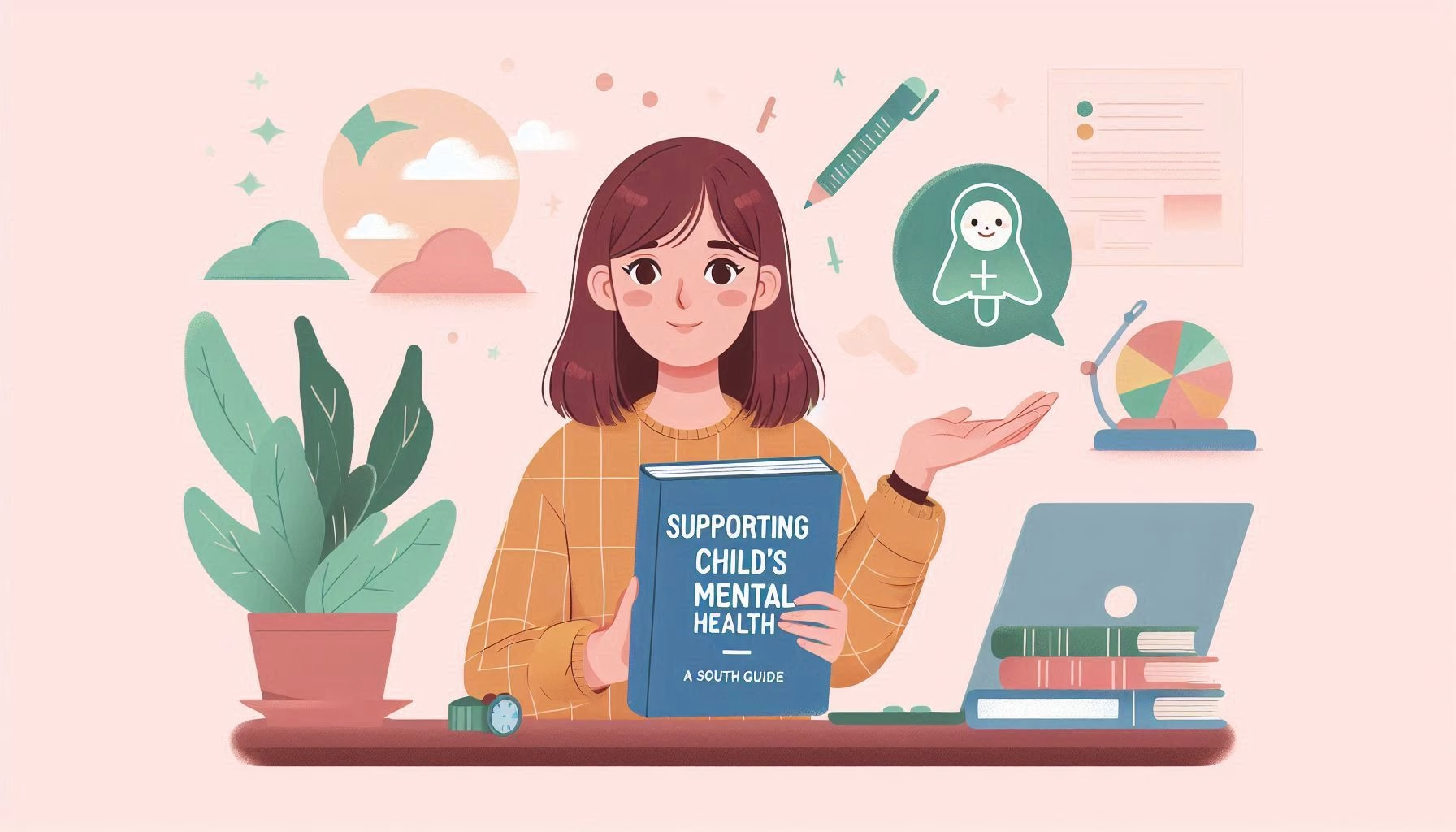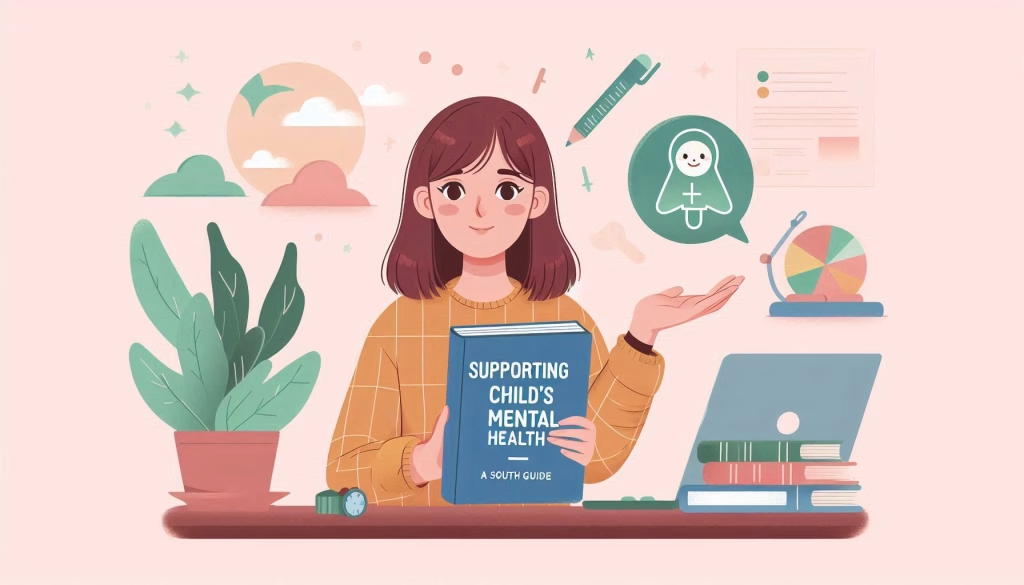Table of Contents
Overview
Mental health has garnered significant attention from health experts in recent years. The Covid-19 pandemic has further intensified this focus, as mental health issues have emerged as one of the adverse effects experienced by numerous individuals.
Mental health is crucial not just for adults, but for children as well. Good mental health is essential as it supports more optimal development in children.
Unfortunately, parents sometimes overlook this aspect of health. Typically, they concentrate more on a child’s physical well-being and less on the child’s mental health.
Indeed, as technology and science advance, mental health issues, particularly among children and adolescents, have risen. It is in this context that parents play a crucial role in supporting and preserving their children’s mental health.
Parents can support their child’s mental health during growth by being attentive listeners, encouraging their interests, and maintaining a positive routine. It’s important to be involved in their life, support them through difficulties, and take their feelings seriously. Structured routines, healthy eating, exercise, and sufficient sleep are also crucial for mental well-being.
Why is Maintaining Children’s Mental Health Important?
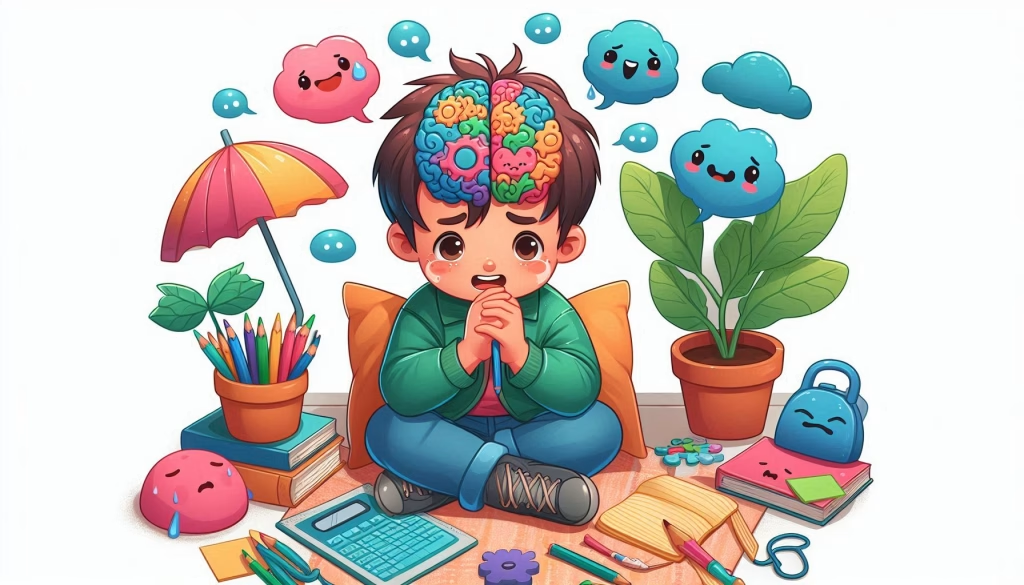
Mental health is equally important as physical health. Sometimes, poor mental health can adversely affect one’s physical well-being. This impact may even disrupt daily activities.
During childhood, mental health significantly influences the future. Children with good mental health are better equipped to develop socially and tackle challenges with greater ease.
Furthermore, children possess more acute cognitive abilities. For instance, a young child may find it simpler to acquire new skills, maintain focus, and think with clarity.
Regrettably, current data indicates an increasing number of children and adolescents are facing mental health issues. Without appropriate intervention, these conditions can significantly affect academic performance, as well as physical and mental health in later life.
How to Maintain Children’s Mental Health?
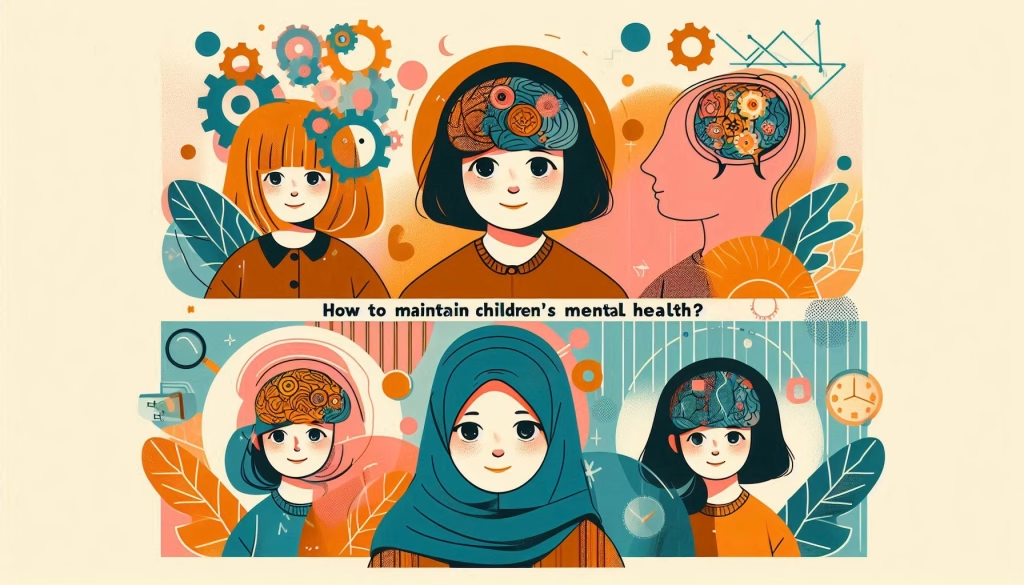
It is crucial for those surrounding children, including parents, grandparents, and neighbors, to play a role in supporting and maintaining the children’s mental health.
Indeed, parents play a crucial role in preserving their children’s mental health. Below are some strategies parents can employ to support their children’s mental well-being.
Maintain Children’s Mental Health No.1
InsuranceWhat.com
Give Children a Sense of Security
Instilling a sense of security in children is crucial for their mental health. When children feel secure, they are generally more capable of self-expression and tend to form positive relationships with others more easily.
For children to feel secure, it’s essential for parents to maintain a safe living environment for their little ones. Demonstrating to your child that they are trusted, valued, loved, and cared for is crucial. Moreover, parents should act as a conduit to foster positive relationships and mutual trust between their children, family members, friends, and the surrounding community.
Maintain Children’s Mental Health No.2
InsuranceWhat.com
Teaching Children to Express and Manage Emotions
Children who are adept at expressing themselves and regulating their emotions often enjoy better mental health. It is important, therefore, to teach children healthy expression and emotional management skills.
For instance, if your child struggles to express emotions and feelings verbally, writing can be a useful tool. Encouraging children to maintain a diary and jot down their feelings and emotions can help alleviate the stress or pressure they may be experiencing.
Maintain Children’s Mental Health No.3
InsuranceWhat.com
Strategies to Shield Children from Traumatic Experiences
The prevalence of mental health issues among children is often linked to those who have endured traumatic events. As a parent, it is crucial to safeguard your children’s physical and mental well-being, ensuring they are alert and protected.
Drastic changes in the family or environment can be traumatic for children. For instance, moving to a new house or welcoming a new sibling requires them to adjust to a changed situation.
Maintain Children’s Mental Health No.4
InsuranceWhat.com
An Invitation for Children to Play
Playtime offers numerous benefits for children. Beyond the joy it brings, it also fosters emotional and social development.
Hence, guiding and supporting children in exploring various educational games positively influences the mental health of young ones. Such games include activities that encourage creativity, interaction with peers, self-control, and problem-solving skills.
Maintain Children’s Mental Health No.5
InsuranceWhat.com
Identifying Mental and Physical Health Issues in Children
Equally important in preserving children’s mental health is the recognition and identification of the issues they face. Typically, children experience negative emotions only briefly.
If you notice your child feeling down for an extended period, it’s important to assist them in overcoming this. Approach your child gently, understand what they are experiencing, and aid them in finding a solution.
Indicators of Children’s Mental Health Disturbances
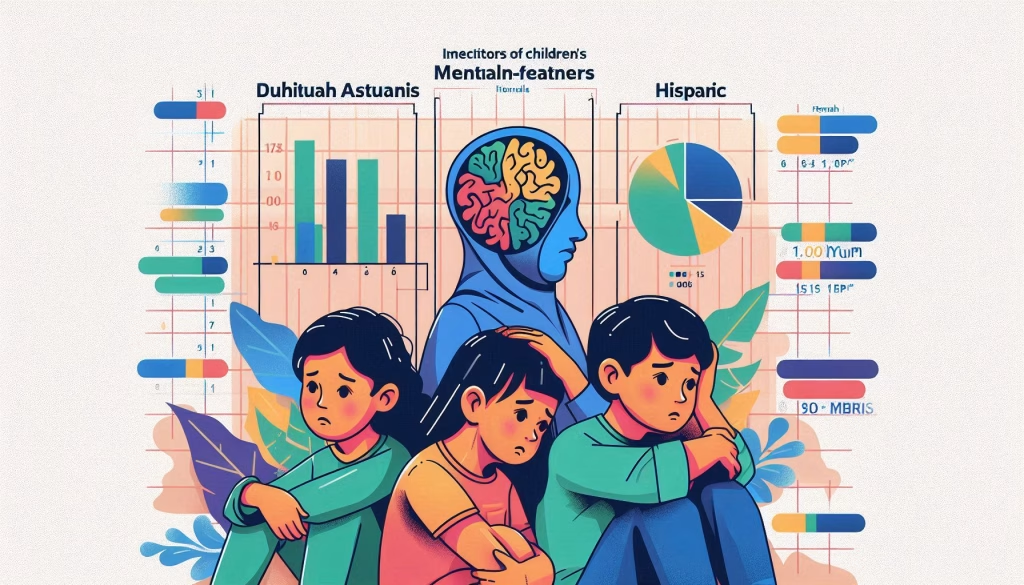
Good mental health during childhood significantly influences a child’s future. As such, it is crucial for parents to give greater attention to their children’s mental health issues.
Regrettably, numerous parents remain oblivious to the signs of mental health issues in their children. This lack of awareness is not entirely unexpected, as these signs are not as conspicuous as the symptoms of physical illness.
Under these circumstances, it is crucial for parents to be vigilant in recognizing signs that may suggest a child is facing mental health challenges. The following are indicators that a child might be struggling with mental health issues.
Indicators of Children’s Mental Health Disturbances No.1
InsuranceWhat.com
Impaired Concentration
Difficulty concentrating is one sign that a child may be experiencing mental health issues. Often, children will struggle to maintain attention or focus on a single task for an extended period.
This typically affects a child’s learning ability, leading to a decline in school performance.
Indicators of Children’s Mental Health Disturbances No.2
InsuranceWhat.com
Noticeable Attitude Changes
When children exhibit sudden changes in behavior, it’s crucial for parents to be extra observant. For instance, if a child becomes unexpectedly irritable, starts having tantrums, or shows rebellious behavior. Moreover, a child may become hesitant to socialize or lose interest in activities they previously enjoyed.
Indicators of Children’s Mental Health Disturbances No.3
InsuranceWhat.com
Mood swings
Another sign of mental health issues in a child is a significant change in mood. These changes often persist for an extended period, and the cause may not be immediately apparent. A child who was previously active and cheerful may become withdrawn and silent over a brief period.
Indicators of Children’s Mental Health Disturbances No.4
InsuranceWhat.com
The Appearance of Eating and Sleep Disorders
Parents should be attentive to any sudden changes in their children’s eating or sleeping patterns. A child’s abrupt loss of appetite leading to weight loss, or excessive eating resulting in obesity, may indicate mental health issues.
Additionally, sleep disturbances are common. Children might either oversleep or struggle to sleep if they are experiencing psychological distress. They may also engage in sleepwalking or suffer from nightmares.
Indicators of Children’s Mental Health Disturbances No.5
InsuranceWhat.com
Displaying unkindness
Another sign that frequently emerges when a child is experiencing mental health issues is the inappropriate expression of emotions. Children may become hostile and engage in various harmful behaviors, such as drinking alcohol, smoking, or possibly using illegal substances.
In certain situations, children may blame and harm themselves, sometimes to the extent that they consider or attempt suicide.
The Conclusion
It is Crucial to Maintain Children’s Mental Health From an Early Age
Preserving a child’s mental health is equally crucial as safeguarding their physical health. Good mental health significantly impacts a child’s growth and development. It is vital to prioritize mental health maintenance from an early age.
A child with good mental health from a young age will enjoy numerous benefits over peers who struggle with mental health issues. Such children are likely to experience superior social development, find it easier to concentrate, and acquire new skills more readily.
There are various methods to support children’s mental health. These include engaging them in play, teaching them to express and manage their emotions, preventing traumatic events, and ensuring that the child feels secure.
Do you think you have other ideas about Supporting Your Child’s Mental Health: A Parent’s Guide? You can comment and share your thoughts below, or discuss more in the InsuranceWhat Forum. Also, read more articles about GLOBAL INSURANCE or other interesting insurance topic articles only at InsuranceWhat.com.

